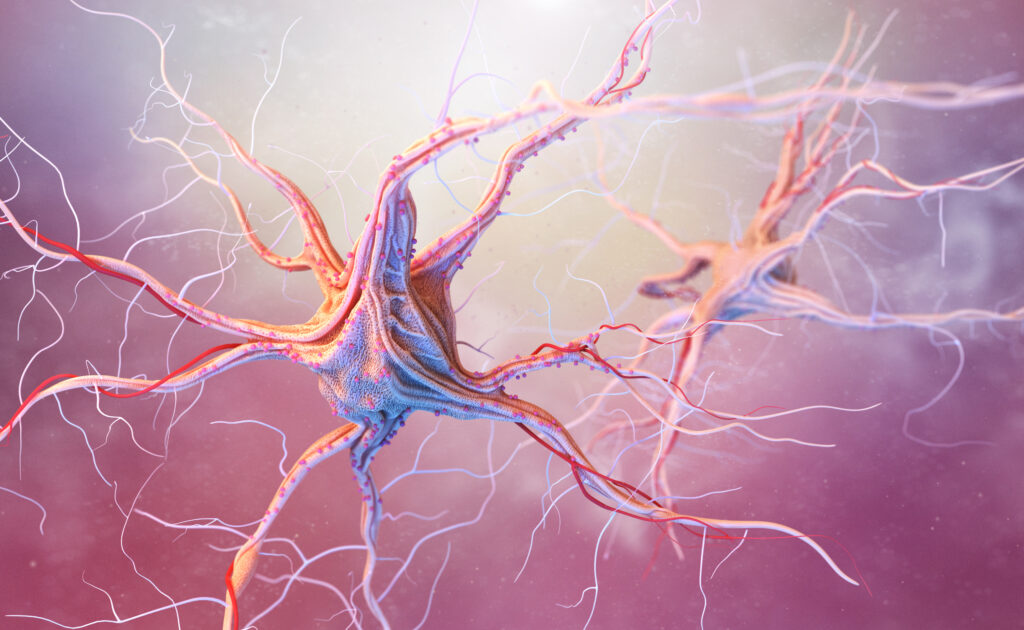Peripheral neuropathy occurs when the peripheral nerves, which transmit signals between the central nervous system (the brain and spinal cord) and the rest of the body, are damaged. This damage can disrupt communication between the brain and other parts of the body, leading to various symptoms.
Causes and Risk Factors
Peripheral neuropathy can result from a variety of causes, including:
- Diabetes: One of the most common causes, diabetic neuropathy, occurs due to prolonged high blood sugar levels.
- Infections: Certain infections, such as Lyme disease, shingles, and HIV/AIDS, can cause nerve damage.
- Autoimmune Diseases: Conditions like rheumatoid arthritis and lupus can lead to peripheral neuropathy.
- Trauma or Injury: Physical injuries, such as fractures or repetitive stress, can damage peripheral nerves.
- Toxins: Exposure to toxins, including heavy metals and certain medications, can cause nerve damage.
- Nutritional Deficiencies: Deficiencies in vitamins such as B12, B6, and E can lead to neuropathy.
- Genetic Disorders: Some inherited disorders, such as Charcot-Marie-Tooth disease, can cause peripheral neuropathy.
Symptoms of Peripheral Neuropathy
The symptoms of peripheral neuropathy can vary depending on the type of nerves affected. Common symptoms include:
- Sensory Nerves: Numbness, tingling, burning sensations, and pain, often starting in the hands or feet and spreading upward.
- Motor Nerves: Muscle weakness, cramps, and difficulty with coordination and balance.
- Autonomic Nerves: Symptoms affecting involuntary functions, such as changes in blood pressure, heart rate, and digestive issues.
Treatment Options:
- Medications: Various medications can help manage the symptoms of peripheral neuropathy, including:
- Pain Relievers: Over-the-counter pain relievers like acetaminophen or NSAIDs can help alleviate mild pain.
- Prescription Medications: Antidepressants, anti-seizure medications, and topical treatments can help manage nerve pain.
- Physical Therapy: Physical therapy can help improve muscle strength, coordination, and balance, reducing the risk of falls and injuries.
- Lifestyle Modifications: Making changes to your lifestyle can help manage symptoms and improve overall health. This includes:
- Healthy Diet: Eating a balanced diet rich in vitamins and nutrients can support nerve health.
- Regular Exercise: Regular physical activity can help improve circulation, reduce pain, and enhance overall well-being.
- Avoiding Toxins: Limiting exposure to toxins, such as alcohol and certain medications, can prevent further nerve damage.
- Alternative Therapies: Some patients find relief from alternative therapies such as acupuncture, biofeedback, and chiropractic care.
- Pain Management Techniques: Techniques such as transcutaneous electrical nerve stimulation (TENS) and nerve blocks can help manage chronic pain.
Preventing Peripheral Neuropathy
While not all cases of peripheral neuropathy can be prevented, you can take steps to reduce your risk:
- Manage Underlying Conditions: Properly managing conditions such as diabetes, autoimmune diseases, and infections can help prevent nerve damage.
- Healthy Lifestyle: Maintaining a healthy diet, regular exercise, and avoiding toxins can support nerve health.
- Protect Your Nerves: Take precautions to avoid injuries and repetitive stress that can damage nerves.
This blog is brought to you by HealthyU Clinics, a leading provider of primary and specialty care services.
Any advice or information shared on our blog, website, or other online communication forum is intended for informational purposes only and is not be considered a substitute for any professional medical advice or other advice. HealthyU Clinics does not make any representations or warranties and expressly disclaim all liability regarding any treatment, action, or effect on any person based on the general information provided through our blog, website, or other online communication forum. For specific concerns, or if you need medical advice, please contact HealthyU Clinics to schedule an appointment with a qualified medical professional.





